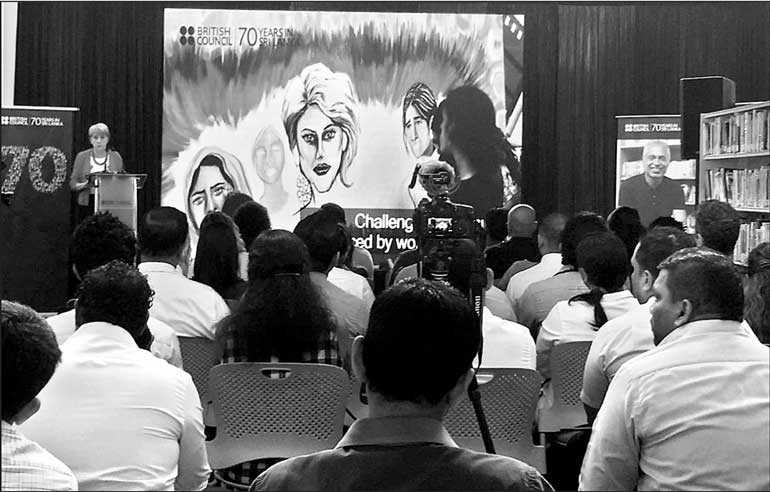Saturday Feb 21, 2026
Saturday Feb 21, 2026
Saturday, 23 November 2019 00:00 - - {{hitsCtrl.values.hits}}


The British Council is celebrating 70 years of #makingalastingdifference in Sri Lanka, showcasing the diverse aspects of its work and highlighting the benefit to individuals – Sri Lankan’s whose lives have been touched by British Council. Over this year the British Council will be collecting stories – in fact 70 stories – from individuals whose lives have been transformed by its work.
Since Sri Lanka’s post-independence in 1949, the British Council has represented the UK through cultural relations, making connections and creating opportunities for young people. With a focus on English, Education, Arts and Youth programs, the British Council has made a positive contribution by sharing experience and expertise, changing lives, and building individual and institutional relationships for the long-term good.
There have been programs that have lasted seven decades, such as support and training for teachers of English, running libraries and organising arts programs. The British Council has also given advice to students going to the UK to study, supported reform programs in the Ministry of Education, and organised lecture tours on a variety of subjects, from science to Shakespeare. Through these initiatives, the British Council facilitated the individual aspirations of Sri Lankans, who often went on to contribute towards the prosperity of the nation.
Later on, the British Council expanded considerably, running English language classes (teaching up to 6,000 adults and young learners each week) and delivering UK examinations (nearly 100,000 a year) across the country. There are now three offices in Colombo, Kandy and most recently Jaffna, and also a partner teaching centre in Matara. Its library membership tops 24,000.
In recent times, the British Council has focused on supporting the development of the education system; advocating quality education for all, promoting the use of English as a key skill, and ensuring education has meaningful outcomes so that skills and knowledge gained are transferable to the world of work.
Likewise in the arts, the British Council is keen to see Sri Lankan creative skills develop and aims to harness the power of arts to challenge and shift attitudes, reduce gender inequality, and see creativity and cultural skills as a source of economic empowerment. The British Council’s work in arts has contributed to the reconciliation process as well as supported the development of the creative economy.
Partnering a large number of public, private, non-profit and non-Governmental organisations over the years, British Council has delivered a portfolio of vibrant and impactful projects, often for young people, working to improve community dialogues, reinforcing the importance of equality, diversity and inclusion. The British Council’s work strengthens pathways towards a journey of social cohesion and reconciliation in Sri Lanka supporting sustainable, economic and social development.
British Council Country Director Gill Caldicott said, “We are extremely proud of contributing to fruitful UK-Sri Lanka relations over the past 70 years. We want to continue to build on the connections and impact of our work towards a mutually beneficial relationship between our two countries and ensure we offer opportunities to bright, young people so they can become the change makers of tomorrow.”